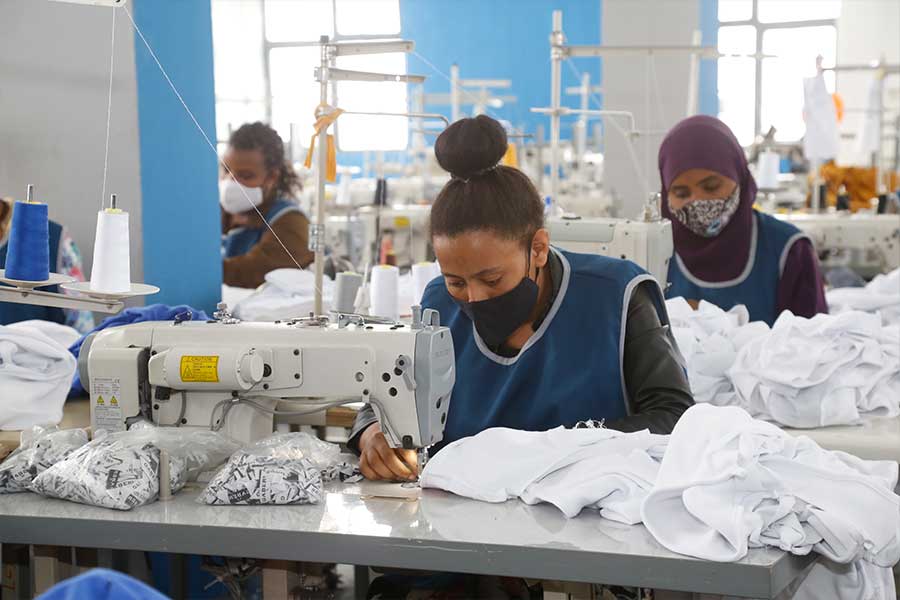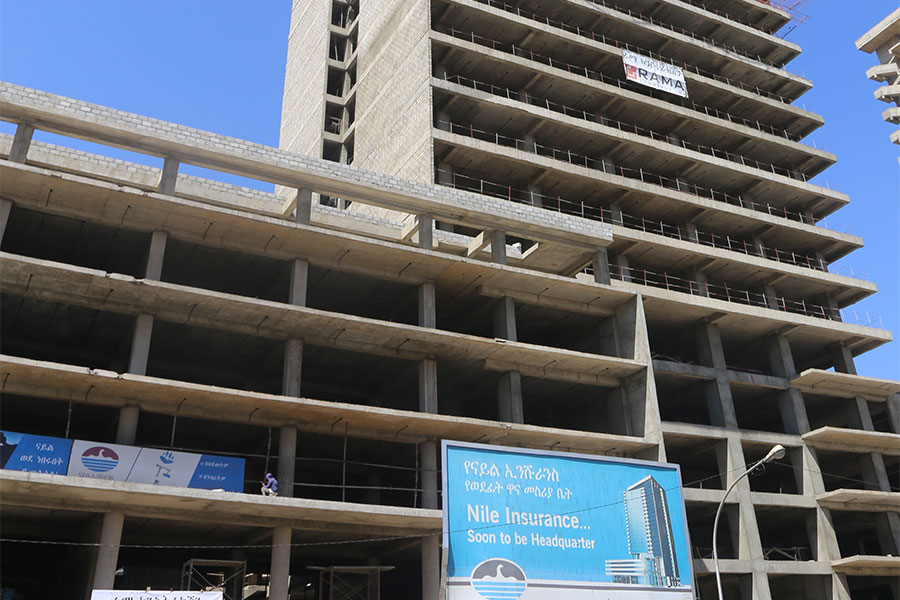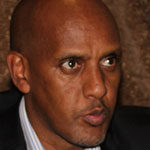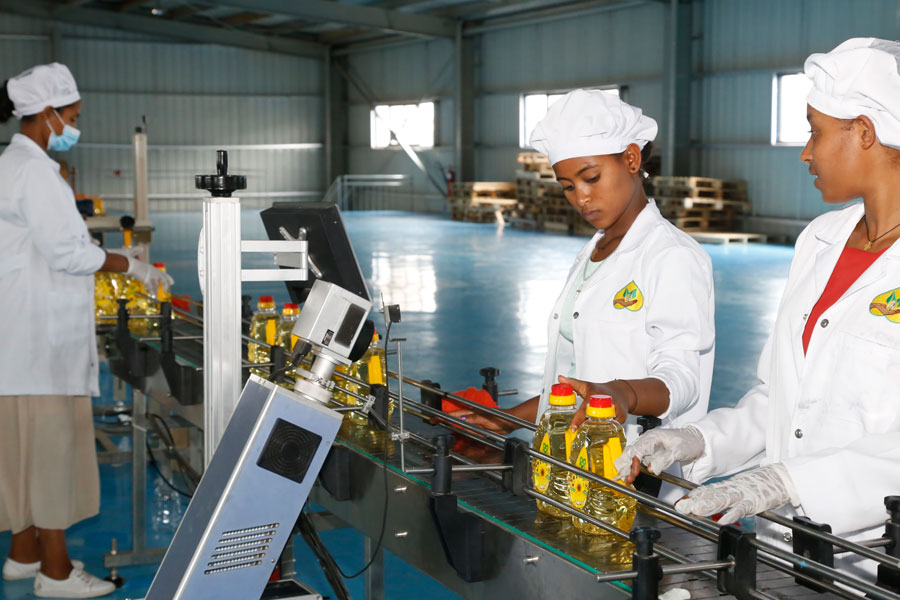
Featured | Oct 17,2020
May 11 , 2019.
Six years ago in April, tents decorated with competing political party symbols were set up on the public squares and loudspeakers blared varying slogans broadcasting a local election season for 3.6 million seats in kebele,wereda, zone and city councils.
The results of that election might have been deemed unfair, given that no other party than the ruling EPRDF could place as many candidates and had the resources to fund the campaigns. The case in point at that time was political parties were not eligible for public funding when they stood in local elections.
Nonetheless, the election was properly scheduled and campaigning was held at least two months in advance. Tragically for Ethiopia’s current incipient democratization process, when and under what circumstances local elections will take place has not been made clear by the government. Most importantly, there are no political debates being conducted on the issue now, and the public is less aware of their relative importance and significance today than six years ago.
Local elections are being glossed over. Federal elections, set to be held next year, despite an ambiguous commitment by the government, are sucking almost all of the oxygen out of local elections. The federal election is considered to be the end all of the nation’s stability and success in the democratization process. From donor support to political debate, its perceived significance is receiving considerable attention, while local elections are relegated to the backseat. Even in the corridors of the National Electoral Board, where Birtukan Midekessa is the chairperson, local elections are barely mentioned, although they will serve as the first critical test to the democratization process.
Local elections, which include seats to the municipal councils of Addis Abeba and Dire Dawa, were supposed to have been held last year. Having been postponed to April of this year - owing to political unrest across the country - parliament left the election date open-ended. As April has come and gone, there is an information blackout as to when local elections will be held.
While this is still bubbling under the surface, there is critical interest across the nation whether in fact the Electoral Board, undergoing major reforms under Birtukan’s leadership, would manage to hold federal elections next May. It speaks to the apparent lack of confidence by the public about the preparedness of the government to be able to schedule and hold elections of this scale, complexity and magnitude.
While the number of seats for federal and regional elections nationally is in the thousands, Addis Abeba alone will see 34,800 seats contested across all its weredas, not including city council and zonal seats. On a national level, there are millions of candidates, and as many campaigns for at least three different ballots that each eligible voter can take part in.
From the standpoint of logistics, management and monitoring, local elections are bound to be as complex and demanding as the federal elections. This is particularly as as funding from bilateral partners is coming either for direct use in the national elections or to strengthen the Electoral Board as an institution.
Short of postponements of both local and national elections, how the Election Board will manage to conduct the elections this year is suspect in view of the scale of preparations that are required and the very short window of time that the Board has in its hands.
These hurdles pale in view of how the democratic transformations have failed to take note of the importance and significance of local elections. Federal elections are kept front, left and centre with heated debate and discussions raging in the political landscape. The incumbent’s rhetoric has also revolved around ensuring the rule of law and transparency before federal elections take place.
Nonetheless, ensuring fairness in federal elections dwarfs the failure in upholding fair elections at the local levels. Much of Ethiopia’s current problems are rooted in failed public services and corruption at the lower level of government, as much as they are in the federal institutions. Ethiopia’s democratisation process will be half-baked unless both local and national elections are held in an unambiguous atmosphere of openness from planning to implementation.
Part of Ethiopia’s inability to mature democratically stems from the weakness of local governments in effectively handling and responding to their economic and social circumstances. Even after the nation was declared a federal republic following the ratification of the current constitution, the level of autonomy local governments should have exercised has been sacrificed by the hegemonic aspirations of EPRDF. It will be hard for a democratic transition to live up to its name if checks and balances across levels of government are not made a central agenda.
The lack of due attention given to local elections in the current political discussions will be the failure of the electorate grasping the importance and significance of local elections. With a political environment too focused on the federal elections, a crucial element of democracy, the full participation of the voters in local elections will be thwarted.
Provision of public services such as health, water, traffic management and public safety all fall within the purview of local governments. Local governments form the initial contact point between citizens and the state. If they are inefficient and prone to corruption, there is not much the federal or regional governments can do to ensure citizen’s rights.
The political atmosphere should not overwhelm itself with the federal election, though it is an important component. Given that local governments form the crux of a state that works for all its citizens, local elections deserve much more emphasis than they currently receive. It is a matter that should get the attention of parliament as well as the very institution tasked with conducting elections, the Electoral Board.
PUBLISHED ON
May 11,2019 [ VOL
20 , NO
993]

Featured | Oct 17,2020

Fineline | Jan 11,2020

Fortune News | May 29,2021

Fortune News | Dec 19,2018

Verbatim | May 18,2019

Fortune News | Jan 07,2024

Sunday with Eden | Feb 27,2021

Radar | Jan 05,2020

Viewpoints | May 15,2021

Radar | Mar 14,2020

My Opinion | 131590 Views | Aug 14,2021

My Opinion | 127946 Views | Aug 21,2021

My Opinion | 125921 Views | Sep 10,2021

My Opinion | 123545 Views | Aug 07,2021

Dec 22 , 2024 . By TIZITA SHEWAFERAW
Charged with transforming colossal state-owned enterprises into modern and competitiv...

Aug 18 , 2024 . By AKSAH ITALO
Although predictable Yonas Zerihun's job in the ride-hailing service is not immune to...

Jul 28 , 2024 . By TIZITA SHEWAFERAW
Unhabitual, perhaps too many, Samuel Gebreyohannes, 38, used to occasionally enjoy a couple of beers at breakfast. However, he recently swit...

Jul 13 , 2024 . By AKSAH ITALO
Investors who rely on tractors, trucks, and field vehicles for commuting, transporting commodities, and f...

Jun 29 , 2025
Addis Abeba's first rains have coincided with a sweeping rise in private school tuition, prompting the city's education...

Jun 29 , 2025 . By BEZAWIT HULUAGER
Central Bank Governor Mamo Mihretu claimed a bold reconfiguration of monetary policy...

Jun 29 , 2025 . By BEZAWIT HULUAGER
The federal government is betting on a sweeping overhaul of the driver licensing regi...

Jun 29 , 2025 . By NAHOM AYELE
Gadaa Bank has listed 1.2 million shares on the Ethiopian Securities Exchange (ESX),...